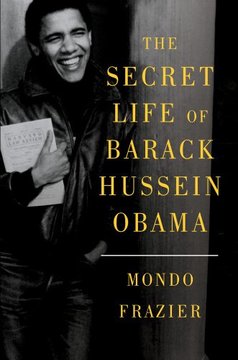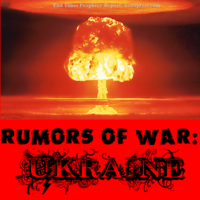
Some Christmas traditions from throughout the world.
CHRISTMAS TREES
In 16th-century Germany fir trees were decorated, both indoors and out, with apples, roses, gilded candies, and colored paper. In the Middle Ages, a popular religous play depicted the story of Adam and Eve's expulsion from the Garden of Eden.
A fir tree hung with apples was used to symbolize the Garden of Eden -- the Paradise Tree. The play ended with the prophecy of a saviour coming, and so was often performed during the Advent season.
It is held that Protestant reformer Martin Luther first adorned trees with light. While coming home one December evening, the beauty of the stars shining through the branches of a fir inspired him to recreate the effect by placing candles on the branches of a small fir tree inside his home
The Christmas Tree was brought to England by Queen Victoria's husband, Prince Albert from his native Germany. The famous Illustrated News etching in 1848, featuring the Royal Family of Victoria, Albert and their children gathered around a Christmas tree in Windsor Castle, popularized the tree throughout Victorian England. Brought to America by the Pennsylvania Germans, the Christmas tree became by the late 19th century.

Afrikaans: Geseënde Kersfees Afrikander: Een Plesierige Kerfees African/ Eritrean/ Tigrinja: Rehus-Beal-Ledeats Albanian:Gezur Krislinjden Arabic: Milad Majid Argentine: Feliz Navidad Armenian: Shenoraavor Nor Dari yev Pari Gaghand Azeri: Tezze Iliniz Yahsi Olsun Bahasa Malaysia: Selamat Hari Natal Basque: Zorionak eta Urte Berri On! Bengali: Shuvo Naba Barsha Bohemian: Vesele Vanoce Brazilian: Feliz Natal Breton: Nedeleg laouen na bloavezh mat Bulgarian: Tchestita Koleda; Tchestito Rojdestvo Hristovo Catalan: Bon Nadal i un Bon Any Nou! Chile: Feliz Navidad Chinese: (Cantonese) Gun Tso Sun Tan'Gung Haw Sun Chinese: (Mandarin) Kung His Hsin Nien bing Chu Shen Tan (Catonese) Gun Tso Sun Tan'Gung Haw Sun Choctaw: Yukpa, Nitak Hollo Chito Columbia: Feliz Navidad y Próspero Año Nuevo Cornish: Nadelik looan na looan blethen noweth Corsian: Pace e salute Crazanian: Rot Yikji Dol La Roo Cree: Mitho Makosi Kesikansi Croatian: Sretan Bozic Czech: Prejeme Vam Vesele Vanoce a stastny Novy Rok Danish: Glædelig Jul Duri: Christmas-e- Shoma Mobarak Dutch: Vrolijk Kerstfeest en een Gelukkig Nieuwjaar! or Zalig Kerstfeast English: Merry Christmas Eskimo: (inupik) Jutdlime pivdluarit ukiortame pivdluaritlo! Esperanto: Gajan Kristnaskon Estonian: Ruumsaid juulup|hi Ethiopian: (Amharic) Melkin Yelidet Beaal Faeroese: Gledhilig jol og eydnurikt nyggjar! Farsi: Cristmas-e-shoma mobarak bashad Finnish: Hyvaa joulua Flemish: Zalig Kerstfeest en Gelukkig nieuw jaar French: Joyeux Noel Frisian: Noflike Krystdagen en in protte Lok en Seine yn it Nije Jier! Galician: Bo Nada Gaelic: Nollaig chridheil agus Bliadhna mhath ùr! German: Fröhliche Weihnachten Greek: Kala Christouyenna! Haiti: (Creole) Jwaye Nowel or to Jesus Edo Bri'cho o Rish D'Shato Brichto Hausa: Barka da Kirsimatikuma Barka da Sabuwar Shekara! Hawaiian: Mele Kalikimaka Hebrew: Mo'adim Lesimkha. Chena tova Hindi: Shub Naya Baras Hausa: Barka da Kirsimatikuma Barka da Sabuwar Shekara! Hawaian: Mele Kalikimaka ame Hauoli Makahiki Hou! Hungarian: Kellemes Karacsonyi unnepeket Icelandic: Gledileg Jol Indonesian: Selamat Hari Natal Iraqi: Idah Saidan Wa Sanah Jadidah Irish: Nollaig Shona Dhuit, or Nodlaig mhaith chugnat Iroquois: Ojenyunyat Sungwiyadeson honungradon nagwutut. Ojenyunyat osrasay. Italian: Buone Feste Natalizie Japanese: Shinnen omedeto. Kurisumasu Omedeto Jiberish: Mithag Crithagsigathmithags Korean: Sung Tan Chuk Ha Lao: souksan van Christmas Latin: Natale hilare et Annum Faustum! Latvian: Prieci'gus Ziemsve'tkus un Laimi'gu Jauno Gadu! Lausitzian:Wjesole hody a strowe nowe leto Lettish: Priecigus Ziemassvetkus Lithuanian: Linksmu Kaledu Low Saxon: Heughliche Winachten un 'n moi Nijaar Macedonian: Sreken Bozhik Maltese: IL-Milied It-tajjeb Manx: Nollick ghennal as blein vie noa Maori: Meri Kirihimete Marathi: Shub Naya Varsh Navajo: Merry Keshmish Norwegian: God Jul, or Gledelig Jul Occitan: Pulit nadal e bona annado Papiamento: Bon Pasco Papua New Guinea: Bikpela hamamas blong dispela Krismas na Nupela yia i go long yu Pennsylvania German: En frehlicher Grischtdaag un en hallich Nei Yaahr! Peru: Feliz Navidad y un Venturoso Año Nuevo Philipines: Maligayan Pasko! Polish: Wesolych Swiat Bozego Narodzenia or Boze Narodzenie Portuguese:Feliz Natal Pushto: Christmas Aao Ne-way Kaal Mo Mobarak Sha Rapa-Nui (Easter Island): Mata-Ki-Te-Rangi. Te-Pito-O-Te-Henua Rhetian: Bellas festas da nadal e bun onn Romanche: (sursilvan dialect): Legreivlas fiastas da Nadal e bien niev onn! Rumanian: Sarbatori vesele or Craciun fericit Russian: Pozdrevlyayu s prazdnikom Rozhdestva is Novim Godom Sami: Buorrit Juovllat Samoan: La Maunia Le Kilisimasi Ma Le Tausaga Fou Sardinian: Bonu nadale e prosperu annu nou Serbian: Hristos se rodi Slovakian: Sretan Bozic or Vesele vianoce Sami: Buorrit Juovllat Samoan: La Maunia Le Kilisimasi Ma Le Tausaga Fou Scots Gaelic: Nollaig chridheil huibh Serbian: Hristos se rodi. Singhalese: Subha nath thalak Vewa. Subha Aluth Awrudhak Vewa Slovak: Vesele Vianoce. A stastlivy Novy Rok Slovene: Vesele Bozicne Praznike Srecno Novo Leto or Vesel Bozic in srecno Novo leto Spanish: Feliz Navidad Swedish: God Jul and (Och) Ett Gott Nytt År Tagalog: Maligayamg Pasko. Masaganang Bagong Taon Tami: Nathar Puthu Varuda Valthukkal Trukeese: (Micronesian) Neekiriisimas annim oo iyer seefe feyiyeech! Thai: Sawadee Pee Mai or souksan wan Christmas Turkish: Noeliniz Ve Yeni Yiliniz Kutlu Olsun Ukrainian: Srozhdestvom Kristovym or Z RIZDVOM HRYSTOVYM Urdu: Naya Saal Mubarak Ho Vietnamese: Chuc Mung Giang Sinh Welsh: Nadolig Llawen Yoruba: E ku odun, e ku iye'dun! |
SANTA CLAUS

The origin of Santa Claus begins in the 4th century with Saint Nicholas, Bishop of Myra, an area in present day Turkey. By all accounts St. Nicholas was a generous man, particularly devoted to children. After his death around 340 A.D. he was buried in Myra, but in 1087 Italian sailors purportedly stole his remains and removed them to Bari, Italy, greatly increasing St. Nicholas' popularity throughout Europe.
His kindness and reputation for generosity gave rise to claims he that he could perform miracles and devotion to him increased. St. Nicholas became the patron saint of Russia, where he was known by his red cape, flowing white beard, and bishop's mitre.
In Greece, he is the patron saint of sailors, in France he was the patron of lawyers, and in Belgium the patron of children and travellers. Thousands of churches across Europe were dedicated to him and some time around the 12th century an official church holiday was created in his honor. The Feast of St. Nicholas was celebrated December 6 and the day was marked by gift-giving and charity.
After the Reformation, European followers of St. Nicholas dwindled, but the legend was kept alive in Holland where the Dutch spelling of his name Sint Nikolaas was eventually transformed to Sinterklaas. Dutch children would leave their wooden shoes by the fireplace, and Sinterklaas would reward good children by placing treats in their shoes. Dutch colonists brought brought this tradition with them to America in the 17th century and here the Anglican name of Santa Claus emerged.
Other countries feature different gift-bearers for the Christmas or Advent season: La Befana in Italy ~ The Three Kings in Spain, Puerto Rico, and Mexico ~ Christkindl or the Christ Child in Switzerland and Austria ~ Father Christmas in England ~ and Pere Noël, Father Christmas or the Christ Child in France. Still, the figure of Santa Claus as a jolly, benevolent, plump man in a red suit described in Moore's poem remains with us today and is recognized by children and adults alike around the world.
Some families eat a traditional Christmas meal together, while other always make a Christmas phone call to every member of the family living away.
Whatever your family's traditions on Christmas, remember: it's more fun if you participate in them.
That's what makes them traditions.
Merry Christmas!
by Mondoreb
[images:fireflyforest;3planesoft;magazineusa]
Sources:
* How Merry Christmas is Said All Over the World
Death by 1000 Papercuts Front Page.






























No comments:
Post a Comment
Leave your name/nic.
We've changed the comments section to allow non-registered users to comment.
We'll continue like that until it's being abused.
We reserve the right to delete all abusive or otherwise inappropriate comments.